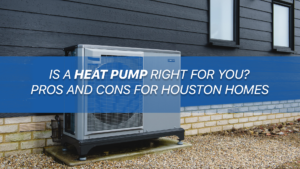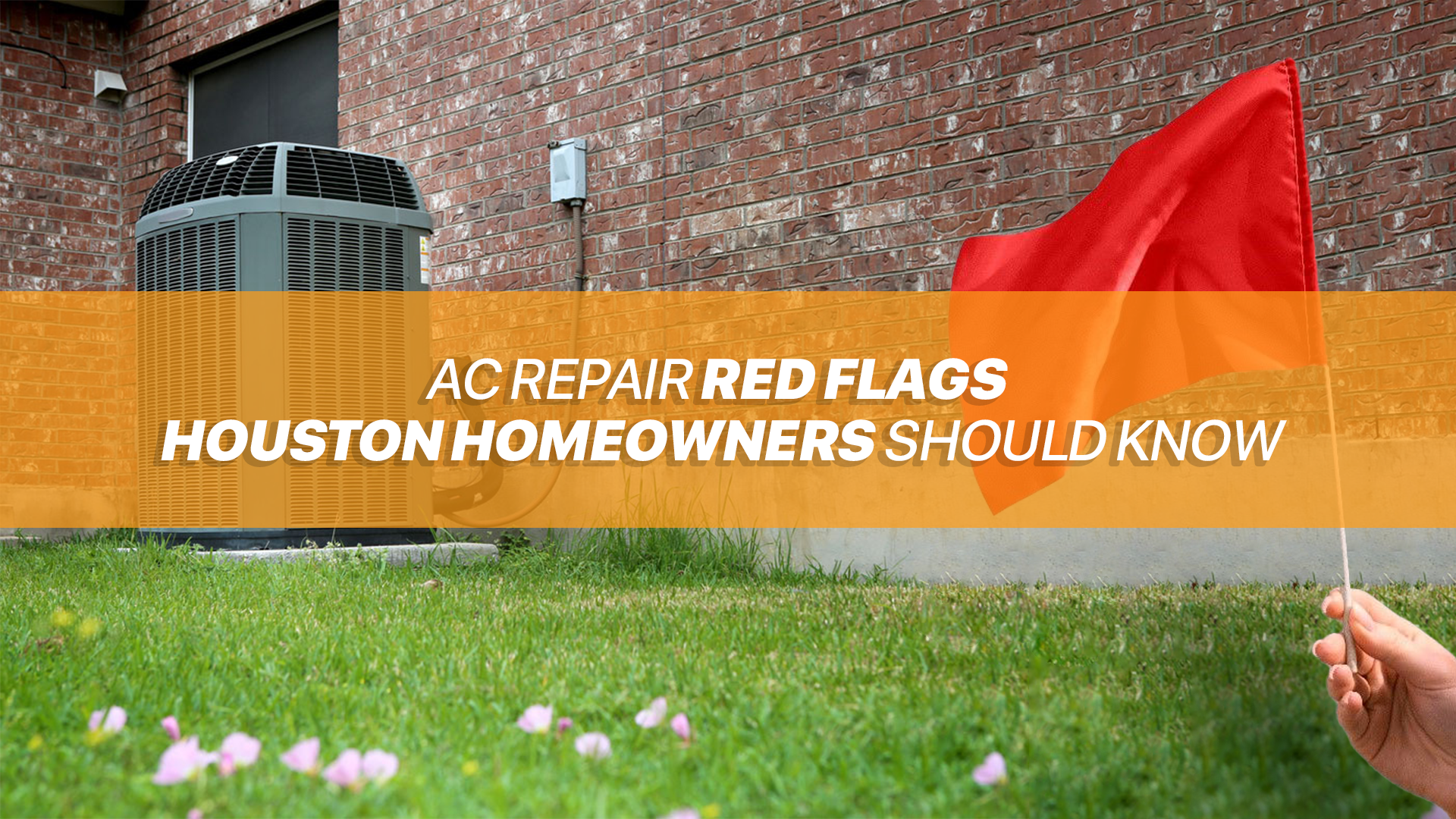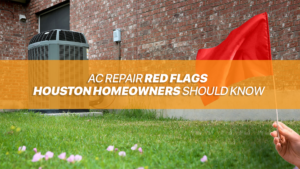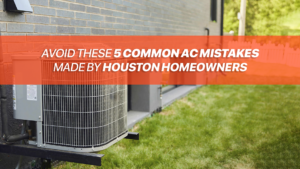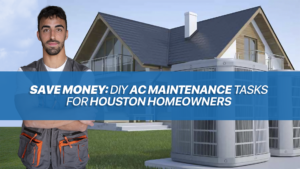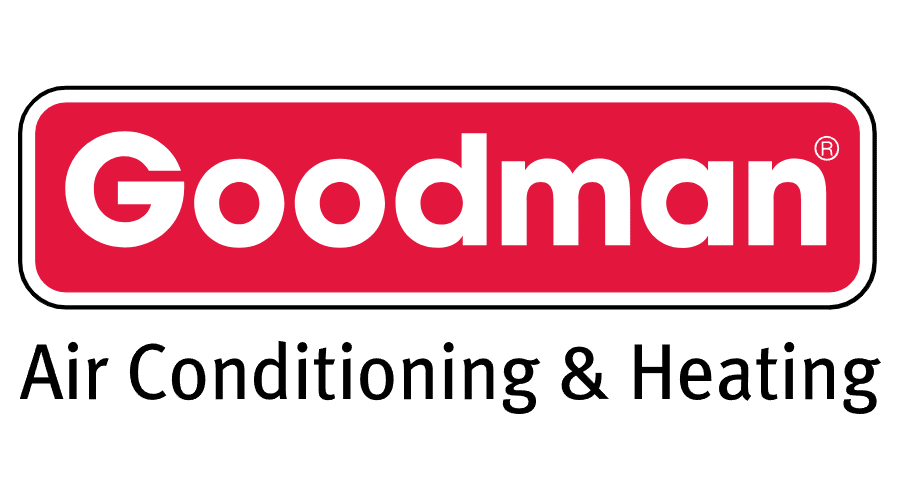As a Houston homeowner, your AC system is one of the most important appliances in your home. With temperatures frequently exceeding 90 degrees and high humidity levels, a properly functioning AC unit is essential for maintaining a comfortable indoor environment. However, AC systems require regular maintenance and can show certain warning signs that repairs or replacements may be needed. Being able to identify potential AC issues early on can help Houston homeowners avoid costly emergency repairs down the road. In this article, well cover the top red flags Houston homeowners should look out for to determine if their AC needs professional attention. Well provide tips on inspecting your AC unit, interpreting odd noises or smells, spotting problems on your energy bills, and deciphering error codes. Read on to learn the key indicators that your AC system may be malfunctioning and in need of repair from a trusted Houston AC company like Turbo Home Services.
1. Thermostat Reading Doesn’t Match Room Temperature
One of the first signs your AC is not working properly is if the temperature on your thermostat does not match the actual room temperature. For example, you may have the thermostat set to 72°F but find that your home still feels much warmer. This likely indicates an issue with your AC system. Possible causes for a mismatch between the thermostat setting and room temperature include:
- Low refrigerant levels preventing proper cooling
- A dirty air filter that needs to be changed
- A malfunctioning thermostat that is incorrectly calibrated
- An AC system that is too small for your home
- A problem with the evaporator coil or condenser unit
If adjusting the thermostat does not resolve the temperature difference, its best to call a professional Houston AC repair company to diagnose the specific issue. Prompt attention can help prevent system failure on extremely hot days.
2. Short Cycling of the AC Compressor
Another warning sign is if your AC system turns on and off frequently or the compressor cycles on and off more than three times per hour. This is known as short cycling, and it indicates a problem with the AC system. Some of the potential causes of short cycling include:
- Low refrigerant levels
- A dirty evaporator coil that needs cleaning
- An obstructed condenser unit
- An overloaded or oversized AC system
- A failing thermostat
Short cycling strains the compressor and can lead to premature system failure. It also prevents proper moisture removal, resulting in higher indoor humidity. Have a professional inspect your AC unit if you notice frequent on/off cycles, as repairs may be needed to restore normal function.
3. Odd Sounds From the AC Unit
Unusual noises coming from your indoor air handler or outdoor AC condenser are telltale signs that repairs may be required. Educate yourself on the normal sounds your system makes when operating properly. That way, youll notice right away if you hear:
- Screeching, grinding or buzzing noises, indicating an issue with the compressor
- Rattling or clanking sounds, signaling a loose part or debris interfering with the fan
- Banging or thumping, which could mean an unbalanced motor or deteriorating parts
- Hissing or gurgling, implying refrigerant leaks or low pressure
- Chattering or clicking, which may point to an unsecured duct or problem with the contactor
Dont ignore strange sounds from your AC system. An experienced Houston AC technician can listen to the noises and diagnose any underlying issues to prevent further damage. Its much easier to repair minor problems before they escalate into complete system failures.
4. Unusual Smells From the AC Vents
Odd odors emanating from your AC vents are another red flag for potential issues. Some smells to be concerned about include:
- A strong, unpleasant odor, indicating mold or mildew buildup inside the ductwork
- A sweet, acetone-like smell, implying an evaporator leak and refrigerant loss
- A burning plastic or rubber smell, signaling an overheating motor or electrical issue
- A rotten egg odor, which may mean a gas leak near the furnace or AC system
Dont try to mask strange smells from your AC vents with air fresheners. Have a technician inspect the unit for any refrigerant leaks, mold issues, or dangerous gas leaks that require immediate repairs. Identifying the root cause of the odor can help prevent deteriorating air quality and even dangerous situations.
5. Significant Spikes or Drops in Energy Bills
Review your monthly energy bills closely during the summer cooling season. Spikes of $50 or more above your average AC usage can signify problems like:
- Refrigerant leaks
- Short cycling
- An oversized and inefficient AC system
- Failing capacitors, contactors or compressors
- Improperly installed or damaged ductwork
Conversely, if your energy bills are drastically lower than normal, that could indicate:
- Your AC system is not running enough to properly cool your home
- The thermostat is malfunctioning
- Low refrigerant levels are preventing the AC from turning on
- There are serious issues with the compressor or condenser
Abnormal changes in electrical usage when you havent altered settings or usage patterns often mean your AC needs professional attention. A certified HVAC technician can pinpoint any maintenance needs or faults impacting energy consumption.
6. Water Leaks Around the Air Handler or Condenser
Evidence of water leaks around your indoor air handler or outdoor AC condenser is a problematic sign. Potential sources include:
- A drain line clog causing condensate backups
- An overflowing drain pan below the evaporator coil
- Leaking refrigerant lines
- A cracked evaporator coil or leaking condenser coil
- Faulty seals around the air handler cabinet
Left unchecked, water leaks can lead to mold growth inside ductwork, damage to walls or ceilings, short-circuiting of electrical components, and even flooding. Have a technician locate and repair the source of any leaks immediately to prevent serious consequences.
7. Frozen Evaporator Coil
If your AC system is running but not cooling your home at all, take a look at the evaporator coil inside the air handler. If it is completely encased in ice, that indicates the coil is frozen over. Causes include:
- Very low refrigerant levels
- A dirty air filter blocking proper airflow
- A problem with the condenser unit or compressor
- An issue with the defrost cycle that prevents ice melt
- An obstructed condensate drain line
A frozen evaporator coil prevents air from passing over the cold coil to be cooled and circulated. Arrange a visit from a certified AC repair technician to safely thaw the coil, replenish refrigerant levels if needed, and get your system blowing cold air once again.
8. Error Codes on the Thermostat
Many digital thermostats will display numeric error codes to alert homeowners that something is wrong with their AC system. While the codes are manufacturer-specific, here are some common issues they signify:
- Low refrigerant charge
- Faulty sensors
- Electrical problems
- Compressor not firing up
- Frozen evaporator coil
- Drain line clogs
Rather than ignoring cryptic AC error codes, research what they mean for your specific unit brand and model. Share the code with a Houston AC repair company to speed diagnosis and repairs. This helps prevent continued operation in a fault state, which can damage components.
9. Age of the AC Unit Exceeds 10-15 Years
As a general rule of thumb, AC systems typically last between 10-15 years. After this point, repairs tend to be frequent and parts harder to source. Upgrading to a new, energy-efficient AC unit often makes better financial sense than continuing to service an outdated, inefficient system well past its normal lifespan.
Consider replacing your AC if it is over 15 years old and youve noticed decreases in cooling capacity, spikes in energy bills, or the need for repeat repairs. Take advantage of off-season discounts in the fall and winter to have a new AC unit installed before next summers heat arrives.
10. DIY Repairs Dont Resolve the Issue
Of course, many minor AC repairs can be completed by knowledgeable DIY homeowners. However, if youve attempted basic troubleshooting like cleaning the air filter, clearing debris from the condenser unit, recharging refrigerant levels, etc. and problems persist, it’s time to call in a professional.
Dont continue guessing at potential issues or watching YouTube tutorials for further repairs. AC systems contain dangerous electrical components, complicated refrigerant chemistry, and parts under high pressure. Allow experienced Houston AC technicians to properly diagnose issues and handle all major repairs for long-term solutions.
Schedule AC Repairs Before Problems Worsen
As a Houston homeowner, make sure you stay vigilant for any of the AC red flags covered in this article during the cooling season. Take note of odd thermostat readings, short-cycling, strange noises or smells, changes in your energy bills, leaks, error codes, frozen coils, and other warning signs. This allows you to schedule professional AC repairs promptly before small issues snowball into complete breakdowns or replacements. For reliable, honest, and transparent AC repair services in Houston, contact the experts at Turbo Home Services. Our NATE-certified technicians have the advanced training, expertise, and equipment needed to accurately troubleshoot all makes and models of AC systems. Well pinpoint the root cause of any issues and recommend the most cost-effective solutions to keep your home cool this summer. To learn more about common AC repairs or schedule service with our team, call Turbo Home Services at (281) 626-5938 or visit us online at https://turbohomeservices.com/contact-us/ today. Beat the Houston heat with a perfectly functioning, optimized AC system thanks to our professional repairs and maintenance.
